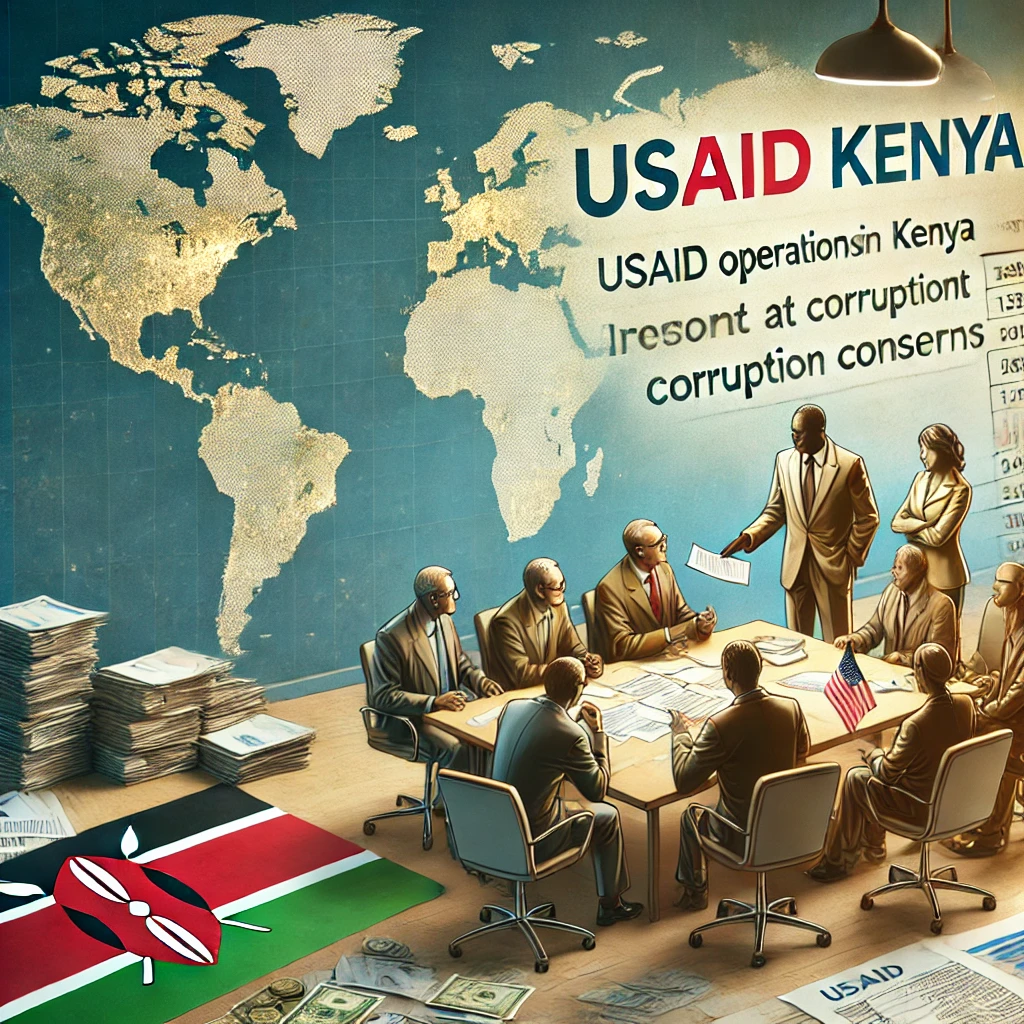In a bold move, President Donald Trump has revoked USAID’s operations in Kenya, citing widespread corruption and mismanagement. This decision, part of his “America First” agenda, has thrown humanitarian programs into disarray, leaving vulnerable populations without critical aid. Here’s a detailed breakdown of the situation and its far-reaching implications.
Key Highlights
- USAID Operations Halted: Trump’s executive order suspends USAID’s Kenyan operations, accusing the agency of corruption and wasteful spending.
- Humanitarian Crisis: Programs supporting healthcare, education, and food security in Kenya and neighboring countries face abrupt suspensions.
- UNHCR Under Fire: The United Nations refugee agency faces renewed scrutiny over corruption in hiring and refugee resettlement practices.
- Legal Battles: Federal employee unions challenge the shutdown, arguing it violates constitutional separation of powers.
USAID’s Corruption Scandal: A System in Disarray
The Trump administration alleges that USAID’s Kenyan offices were riddled with corruption, including:
- Nepotism and Bribery: Reports suggest jobs were awarded based on political connections and kickbacks rather than merit.
- Wasteful Spending: Projects like a $70,000 “DEI musical” in Ireland and $2 million for Guatemalan transgender activism have drawn criticism.
- Immediate Fallout: Thousands of USAID employees are on administrative leave, and critical programs in Kenya, Sudan, and Mozambique have been suspended.
Humanitarian Impact: Lives at Stake
The shutdown has left millions without access to life-saving services:
- Healthcare: HIV treatment programs for 389,000 people in Mozambique are at risk.
- Nutrition: Malnutrition aid for children in Sudan has been halted.
- Refugee Support: UNHCR’s corruption scandals further complicate efforts to assist vulnerable populations in Kenya’s Dadaab and Kakuma camps.
Trump’s Rationale: Cutting Waste and Restoring Accountability
President Trump argues that USAID’s inefficiencies are an unacceptable drain on taxpayer dollars. His administration plans to:
- Merge USAID with the State Department: Streamline operations and reduce the agency’s workforce from 10,000 to 290 employees.
- Eliminate Red Tape: Focus on programs that align with U.S. strategic interests, such as countering Chinese and Russian influence in Africa.
UNHCR’s Corruption Crisis: A Broken System
While USAID dominates headlines, UNHCR faces its own challenges:
- Bribery Allegations: Staff are accused of demanding bribes to fast-track refugee resettlement applications.
- Nepotism in Hiring: Positions are often awarded based on personal connections rather than professional competence.
- Global Repercussions: These practices undermine trust in UNHCR and jeopardize its mission to protect refugees.
Broader Implications for U.S. Foreign Policy
- Power Vacuum: China and Russia are poised to fill the void left by reduced U.S. aid in Africa.
- Moral and Strategic Costs: Critics warn that dismantling USAID harms U.S. global leadership and exacerbates humanitarian crises.
- Legal Challenges: Courts will determine whether Trump’s actions violate constitutional and statutory limits.
What’s Next? Legal Battles and Reforms
- Legal Showdown: Federal judges have temporarily blocked some measures, but the administration’s defiance of congressional authority remains contentious.
- Humanitarian Emergency: Experts predict increased displacement, disease spread, and economic instability in affected regions.
- Reform Efforts: Both USAID and UNHCR face pressure to implement accountability measures and restore public trust.
Conclusion
The revocation of USAID’s Kenyan operations and UNHCR’s corruption scandals mark a turning point in U.S. foreign aid policy. While Trump’s supporters view this as a necessary purge, critics warn of dire humanitarian and strategic consequences. As legal battles unfold, the world watches to see whether these agencies can reform—or if the U.S. retreat from global leadership becomes permanent.

